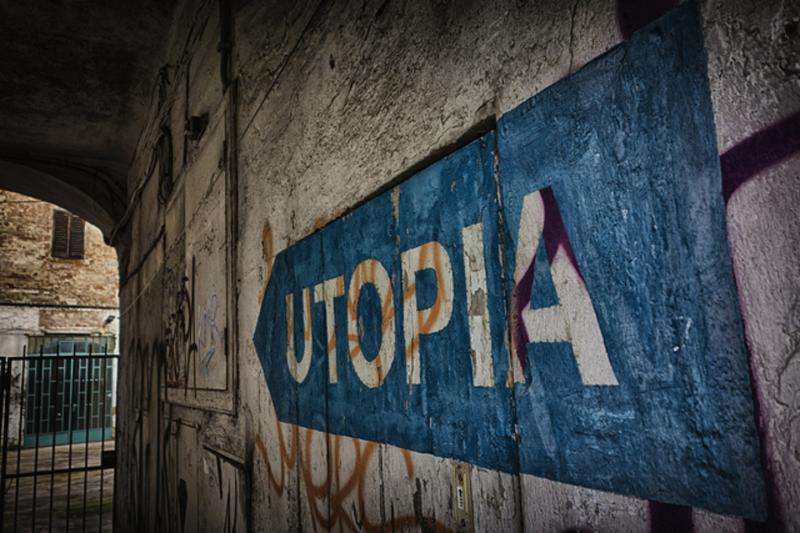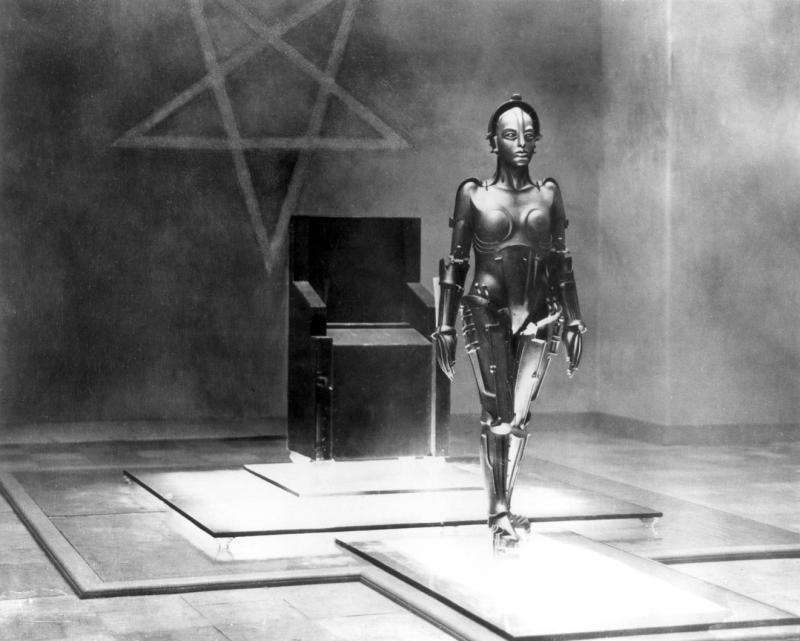Opinion: A post-work economy of robots and machines is a bad Utopia for the left

Picture a world where robots do all the work while humans enjoy life unburdened by labour. This is an old dream of radicals and Marxists. But the post-work imaginary has taken hold in the unlikeliest of quarters, from Labour Party policy seminars to the World Economic Forum in Davos.
Recent books such as Inventing the Future by Nick Srnicek and Alex Williams and Postcapitalism by Paul Mason have brought these debates to prominence. They have successfully translated the outer fringes of radical thinking into an agenda for policymakers and the media.
The post-capitalism future they promise is driven by automation and a universal basic income (UBI). UBI has advocates on both right and left. Free-market advocates like Martin Wolf of the Financial Times back UBI because capitalism can no longer provide jobs for all and it becomes the saviour of the capitalist system. Left-wing advocates of UBI, like Mason, see it as a route to a future Utopia: in the short-term guaranteeing the survival of capitalism by dealing with technological unemployment, while in the long-term paving the way towards a post-capitalist world.
How can an idea favoured by the free-market right form the basis for a "good" Utopia of the left? To confront this paradox we need to look into how capitalism works in the present. While robots, automation and the universal basic income may take us beyond work they cannot take us beyond capitalism.
Post-work is not post-capitalism
The UBI is an unconditional sum of money provided by the government regardless of whether you are getting a salary. It gives everyone a base wage and replaces the social security system if you are unemployed or unable to work. So far so progressive – at first glance. But we think the post-work thesis rests on flawed foundations. These relate to the way it understands work, the wage, technology, the state and money. And this has serious political implications.
Work and the wage
According to advocates of the post-work thesis, the problem with capitalism is that it makes us dependent upon work and is the basis for an exploitative system. The UBI appears to be progressive for it frees us from exploitation as well as makes everyone semi-autonomous from work.
However, the negative effects of capitalism go beyond work. Via the wage, capitalism involves the subordination of our lives to the command of money. Money is not a thing, or a neutral mechanism to allow buying and selling, but a form of social domination which is impossible to escape. In the global economy, we cannot live without money. So while UBI may make us free from (un)employment, it makes us more dependent on money and the state. Ultimately, it provides a state-sponsored foundation for unsustainable hyper-consumption.

Technology is not neutral
Automation is one of the pillars of the "virtuous" circuit of the post-work Utopia in which new technology, encouraged by the state, can increase productivity and free labour from production. Non-workers can then be supported by the resources created by automation, which creates a fiscal room for the UBI. But we see automation as the problem more than the solution. The design and development of technology will still occur under capitalist imperatives. In the Brave New World envisaged in the post-work dystopia, robots are celebrated while humans are denigrated and consigned like zombies to the total domination of money and the state.
What about the state?
The state imagined here is not the one we find in reality. Increased automation, and therefore worklessness, requires a capitalist state that supports and maintains our capacity to consume, while UBI increases the dependence of people on the state for their subsistence. UBI, and the post-work Utopia it supports, require a state that exists in order to guarantee capitalism's survival. It is not the left's dream of a state to usher in a new post-capitalist age.
Money, money, money
Money governs the planet. We cannot live except through money, received in the form of a wage pitched at the level we need to survive as productive labour. But the roots of a wage crisis lie not in the amount of the money we have in our pockets, but because our access to the things we need to live is mediated by money in the first place. How, then, is a crisis of the wage solved by distributing more money? Printing money is easy. Living under the abstract form of domination it implies is not. The distribution of money by the state will only mean a different form of distribution of wealth for social reproduction but in no way can move us to a post-capitalist era.
Concrete Utopias are good Utopias
The post-work Utopia is a bad Utopia for the left. It is a dangerous proposal that leaves us beholden to capital, the state, and money. In short, it consolidates capitalism.
Contemporary struggles around social reproduction show a different path. Experiments in food, care, land, work and housing led by social movements and organisations worldwide – such as the Movement of Unemployed Workers in Argentina – highlight how it is possible to challenge capitalism in a broader, more creative way.
By intervening in and "commoning" our access to the things we need, cooperative projects seemingly unrelated to the world of work may pose the most radical challenge to it. These projects develop not outside or post-capitalism but within it. Concrete Utopias create alternative practices, ideas and horizons that exist in the here and now. They are crisscrossed by tensions and contradictions, disappointments and setbacks. But it is here where we can find the promise of a properly post-capitalist future.
Source: The Conversation
This story is published courtesy of The Conversation (under Creative Commons-Attribution/No derivatives).![]()



















